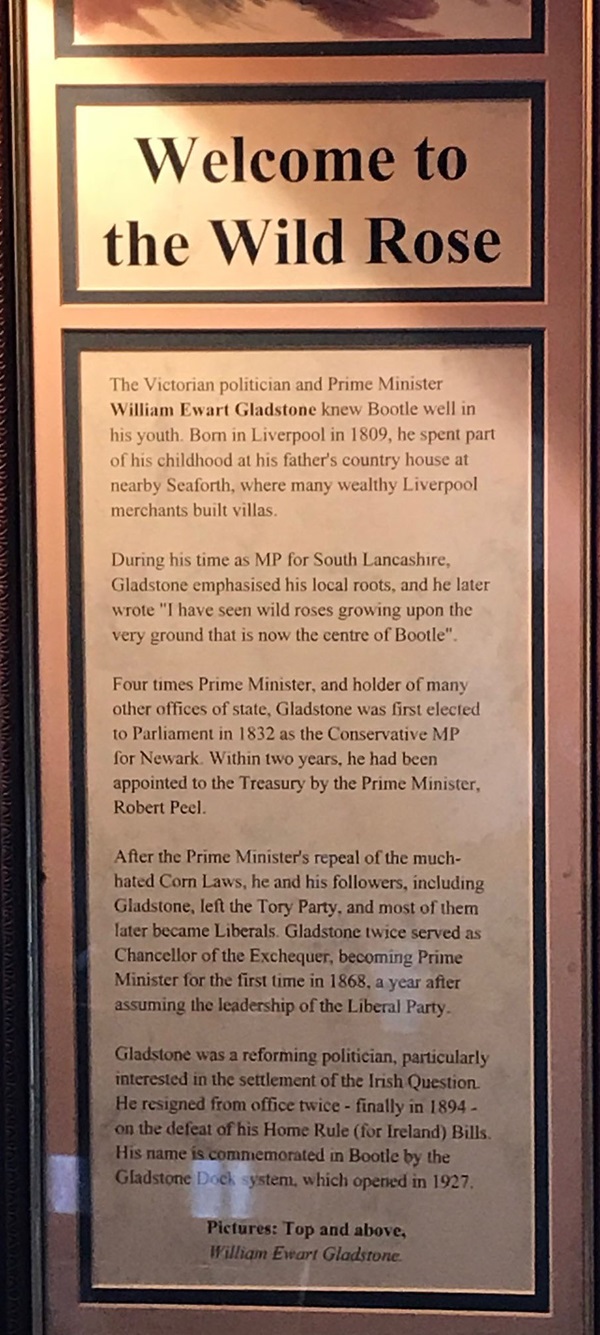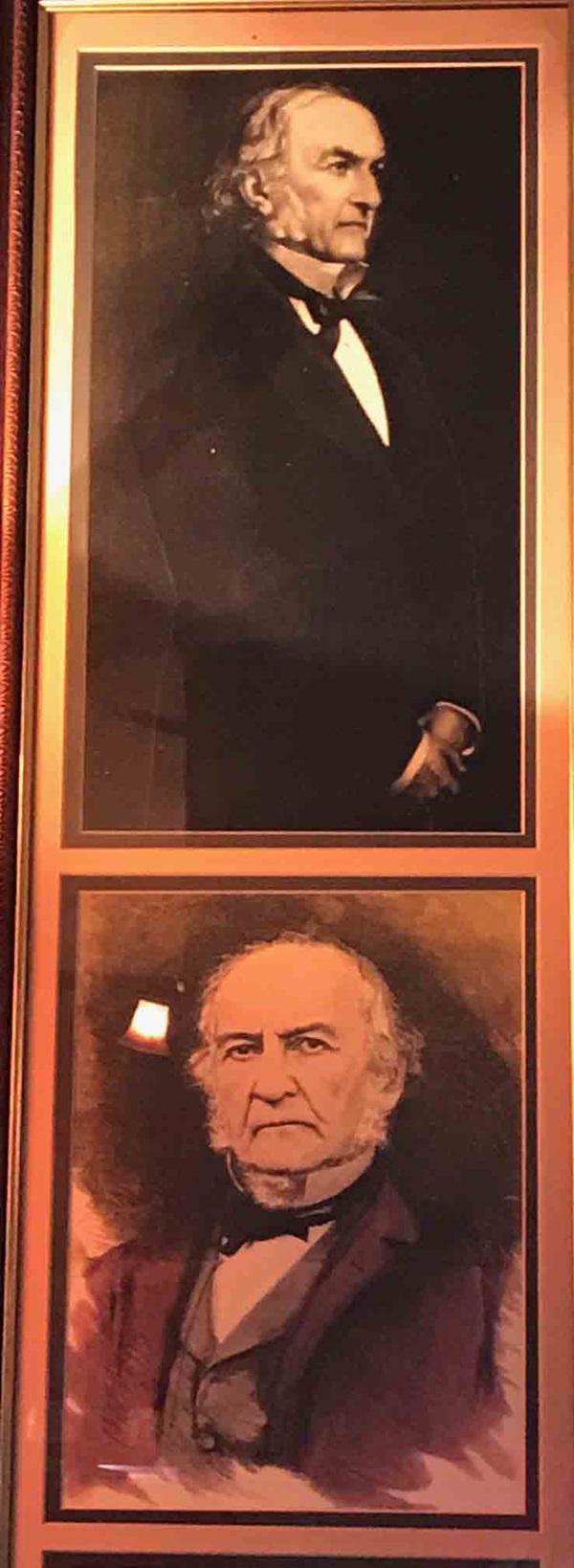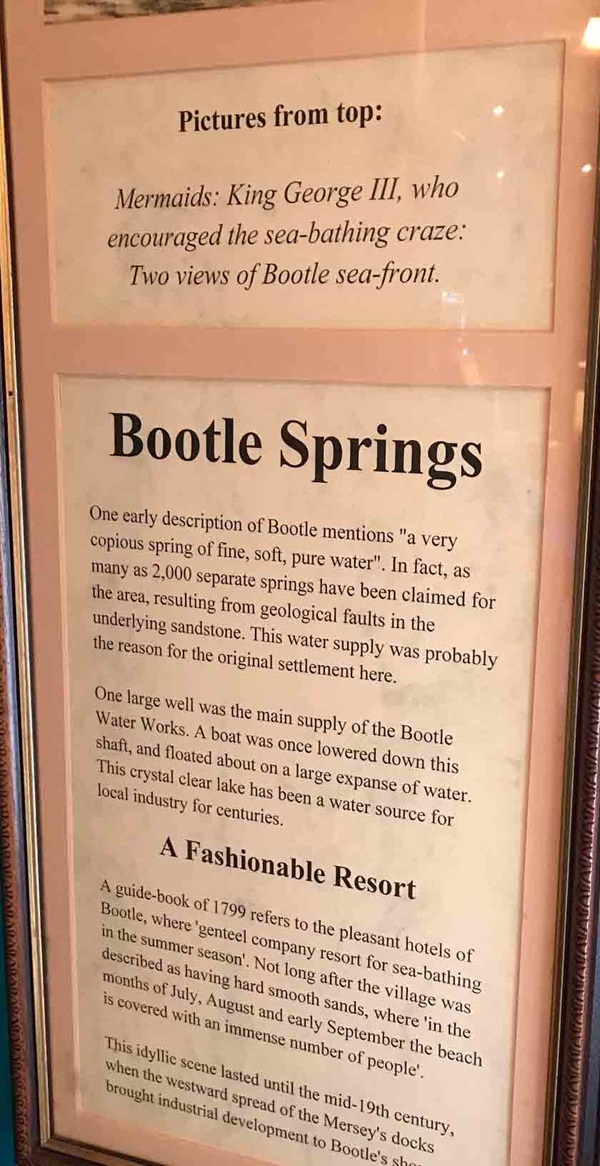This pub is closed permanently. Your nearest Wetherspoon pubs: The Thomas Frost or The Raven
This pub’s name recalls William Gladstone, the 19th-century prime minister and MP for Liverpool, who spent part of his childhood in Merseyside. In later life, he recollected: “I have seen wild roses growing on the very ground which is now the centre of Bootle.”
Prints and text about The Wild Rose.


The text reads: The Victorian politician and prime minister William Ewart Gladstone knew Bootle well in his youth. Born in Liverpool in 1809, he spent part of his childhood at his father’s country house at nearby Seaforth, where many wealthy Liverpool merchants built villas.
During his time as MP for South Lancashire, Gladstone emphasised his local roots, and he later wrote “I have seen wild roses growing upon the very ground that is now the centre of Bootle”.
Four times prime minister, and holder of many other offices of state, Gladstone was first elected to Parliament in 1832 as the Conservative MP for Newark. Within two years, he had been appointed to the Treasury by the Prime Minister, Robert Peel.
After the prime minister’s repeal of the much-hated Corn Laws, he and his followers, including Gladstone, left the Tory Party, and most of them later became Liberals. Gladstone twice served as chancellor of the exchequer, becoming prime minister for the first time in 1868, a year after assuming the leadership of the Liberal Party.
Gladstone was a reforming politician, particularly interested in the settlement of the Irish Question. He resigned from office twice – finally in 1894 – on the defeat of his Home Rule (for Ireland) Bills. His name is commemorated in Bootle by the Gladstone Dock System, which opened in 1927.
Pictures: Top and above, William Ewart Gladstone
Prints and text about Bottle springs.


The text reads: One early description of Bootle mentions “a very copious spring of fine, soft, pure water”. In fact, as many as 2,000 separate springs have been claimed for the area, resulting from geological faults in the underlying sandstone. This water supply was probably the reason for the original settlement here.
One large well was the main supply of the Bottle Water Works. A boat was once lowered down this shaft, and floated about on a large expanse of water. This crystal clear lake has been a water source for local industry for centuries.
A guidebook of 1799 refers to the pleasant hotels of Bootle, where ‘genteel company resort for sea-bathing in the summer season’. Not long after the village was described as having hard smooth sands, where ‘in the months of July, August and early September the beach is covered with an immense number of people’.
This idyllic scene lasted until the mid-19th century, when the westward spread of the Mersey’s docks brought industrial development to Bootle’s shores.
Pictures from top:
Mermaids: King George III, who encouraged the sea-bathing craze: Two views of Bottle sea-front.
A photograph of Gilbert Norris Removals, c1909.

Mrs Gilbert Norris (left) and her son and daughter-in-law, outside the family removals firm’s van office in Stanley Road.
If you have information on the history of this pub, then we’d like you to share it with us. Please e-mail all information to: pubhistories@jdwetherspoon.co.uk

